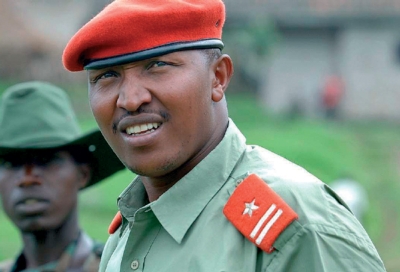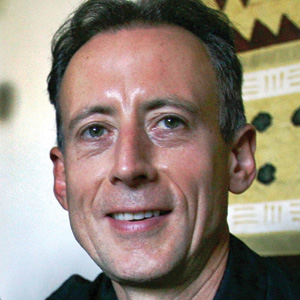
The “March 23” insurgency began as a mutiny earlier this year by former rebels who had been integrated into the Congolese army after a previous peace deal in March 2009. The mutiny was ostensibly triggered by violations of that agreement. But there are mounting allegations by the UN and human rights groups that the rebels are being directed, trained and supported by the government of neighbouring Rwanda. On 30 November, the UK government became the latest international donor to suspend aid to Rwanda as a result.
M23’s leaders reportedly include the notorious Rwandan-born warlord Bosco Ntaganda, whose bloody track record in previous conflicts has earned him the nickname “The Terminator”. Despite being wanted for war crimes by the International Criminal Court, Bosco was given a senior role in the Congolese army as part of the 2009 peace deal.
“Bosco Ntaganda is the most notorious but he’s by no means the only one”, says Carina Tertsakian of Human Rights Watch, who talks of a strong sense of déjà vu around the current crisis. “Quite a few of his mates are and have been doing the same kinds of things for years... No one has ever done anything to arrest them so they just carry on, they become emboldened... the use of violence and those atrocities start being rewarded.”
Human Rights Watch has documented a litany of abuses by M23 in recent months, including rape, summary executions and the forcible recruitment of child soldiers. Despite the group numbering less than 3,000 troops, neither the weak and demoralised Congolese army nor the UN peacekeeping force deployed in Eastern Congo have been able to stop them. Last month M23 added to the government’s woes by capturing Goma, capital of the strategically vital North Kivu region.
Yet the Rwandan-backed rebel group is just one among a number – both inside and outside the country – vying for control of Congo’s mineral wealth, as the regime of President Joseph Kabila staggers under the weight of its own corruption.
“People talk about the Rwandese because the Rwandese have taken the lead... but it would be completely wrong to think [they] are the only players”, says Gérard Prunier, a renowned expert on Congolese politics and author of several books on the region.
“There are nine or ten different countries ready to jump in... All the neighbours would love a replay of the 1998-2003 [conflict]... The international community pretended to rebuild Congo and for a few years it looked like it might work... Then Mr Kabila destroyed it by being too greedy... so we’re right back to square one. We’re back ten years ago. And the situation is still the same – the Congo is still rotten, the neighbours are still hungry, and the Congo is still just as rich.”
One thing, however, has changed. Last year, the establishment of an independent state in Southern Sudan broke the longstanding convention among African leaders that the continent’s colonial borders could not be redrawn.
Now that this taboo has been broken, Gérard Prunier predicts that Congo’s current crisis could lead to the break-up of the country within the next five years. “Now the question is simply to know: how will the Congo be taken apart? Who is going to sit at the table and start eating?”

